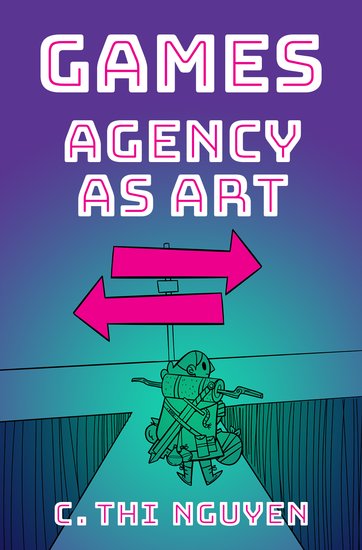
Thinking Art
Agency As Art

Thinking Art
Agency As Art

This volume presents a new theory of games which insists on games' unique value in human life. C. Thi Nguyen argues that games are an integral part of how we become mature, free people. Bridging aesthetics and practical reasoning, he gives an account of the special motivational structure involved in playing games.
Levertijd op aanvraag
Games are a unique art form. Games work in the medium of agency. Game designers tell us who to be and what to care about during the game. Game designers sculpt alternate agencies, and game players submerge themselves in those alternate agencies. Thus, the fact that we play games demonstrates the fluidity of our own agency. We can throw ourselves, for a little while, into a different and temporary motivations.
This volume presents a new theory of games which insists on their unique value. C. Thi Nguyen argues that games are an integral part our systems of communication and our art. Games sculpt our practical activities, allowing us to experience the beauty of our own actions and reasoning. Bridging aesthetics and practical reasoning, he gives an account of the special motivational structure involved in playing games. When we play games, we can pursue a goal, not for its own value, but for the value of the struggle. Thus, playing games involves a motivational inversion from normal life. We adopt an interest in winning temporarily, so we can experience the beauty of the struggle. Games offer us a temporary experience of life under utterly clear values, in a world engineered to fit to our abilities and goals.
Games also let us to experience forms of agency we might never have developed on our own. Games, it turns out, are a special technique for communication. They are a technology that lets us record and transmit forms of agency. Our games form a "library of agency" and we can explore that library to develop our autonomy. Games use temporary restrictions to force us into new postures of agency.